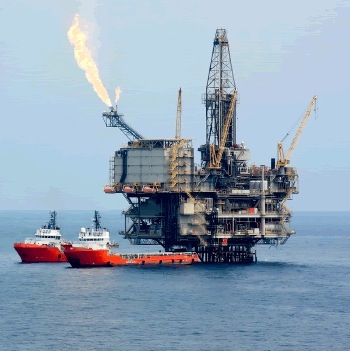www.fastnetoilandgas.com
by Philip
 Fastnet has no interest in trying to become a producer or major itself, instead instead it intends to sell on assets once they’re of sufficient size to attract one of the industry giants
Fastnet has no interest in trying to become a producer or major itself, instead instead it intends to sell on assets once they’re of sufficient size to attract one of the industry giants
Fastnet Oil (LON:FAST) is one of the newest and most talked about oil groups on AIM at present.
It believes there are still many undiscovered “elephant” size oil fields and its mission is to find them, prove them up, and sell them on to one of the major oil firms for development.
That selling on is critical to Fastnet’s plans says chairman Cathal Friel, who says it will dispose of an asset as soon as it can prove a field of a sufficient size and commerciality to attract one of the industry giants.
The company has “no intention” or interest in trying to become a producer or major itself, he says, adding that this where the majority of junior oil companies go wrong.
He instead points to Cove Energy, where as soon as it made a massive gas discovery on the east coast of Africa put itself up for sale.
It was eventually sold to Thai state oil firm PTT for £1.2 bln after a takeover battle with Shell.
Cove is a name that features a lot in any discussion about Fastnet.
Cove’s founder and chief executive John Craven is one of Fastnet’s main backers, though Friel is keen to point out that his direct input is purely in an advisory role.
The Cove connection also stretches to Stephen Staley, Fastnet’s chief executive. While Cove chief financial officer Michael Nolan is also a founding shareholder and director of Fastnet, and Cove adviser Paul Griggs has a similar role at Fastnet.
Staley was on the board of Cove as a non-exec during the PTT sale negotiations with the thirty–seven companies that initially expressed an interest in acquiring it.
Staley says the Cove experience has given him a great insight into what the major oil companies are looking at currently.
“You have got to find something that has the potential to be the next new oil province or frontier with major reserves.”
He says Fastnet’s two current plays – in the Celtic Sea offshore Ireland and offshore Morocco- both fit the bill as high impact plays with major appeal potential.
In the Celtic Sea, Fastnet has two licences – in the Molly Malone and Mizzen Basins.
An independent report in July estimated the two areas could contain a colossal unrisked 15 billion barrels of oil, though the company admits a lot of work is still needed to prove up the project and find the best drilling targets.
Its expects to be awarded two more licences in the region and will aim to sell an interest in the four-licence package next year to a major to carry out an extensive 3-D seismic.
It is what Fastnet is doing on its acreage in Morocco, which could prove to be even more prospective than Ireland.
Morocco is currently one the world’s hottest exploration spots and Fastnet has a stake in one of the most promising pieces of real estate through its 18.75 per cent interest in offshore licence Foum Assaka.
It is a huge area, equivalent in size to about 34 North Sea blocks and holding at least 4.9 bln barrels of oil according to preliminary forecasts.
Fastnet acquired its holding through the acquisition of Pathfinder, paying US$1 million in cash and US$7 million worth of Fastnet shares.
Kosmos, the oil group that helped Tullow Oil find the Jubilee field offshore Ghana, also has a 56.25 per cent stake acquired in return for carrying Pathfinder through a US$16-20 mln 3-D seismic programme.
Kosmos is looking for multiple plays similar to Jubilee and as the field develops another partner is likely to come in to fund the drilling.
At that point Fastnet may duck out having booked a tidy profit.
All its prospects are held in different companies, Friel says, so that it can sell the Celtic Sea interests or Morocco separately or even the whole company for the right offer.
“We are in effect an R&D partner for the majors. We find the prospects, stake and cook them and pass them on.”
The skill is getting the timing right, he adds, and buying at the right stage of the development of a basin.
“Too late and you pay too much and too early and there is not enough excitement around it.”
A test of this skill may come when Fastnet acquires a third leg to the business. It says it is looking but understandably is reluctant to give too many details, though North Africa may be a possibility.
Friel says a third leg would give the firm a greater chance of proving up a major new production area in the next two years.
First news is likely to be an update on the new licences in Celtic Sea and processing of seismic in Morocco, but brokers suggest a major kicker for the shares will be finding a farm-in partner for the Irish acreage.
The recent success of Providence Resources (LON:PVR) at Barryroe has done it no harm here and Fastnet acknowledges that without the work carried out by Providence generating interest might have proved a much harder task.
But now it’s full steam ahead in the region for Fastnet.
Friel said: “Providence has proved there is something there, but we are targeting the monster that lies just over the hill.”






